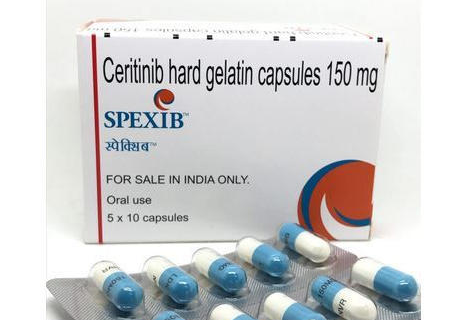Note when using Aspirin in asthma patients
This is an automatically translated article.
Article written by Pharmacist Hoang Tra Linh - Vinmec Danang International General Hospital.
Aspirin should be used with caution in asthmatic patients. In the case of patients with a history of aspirin-induced paroxysmal respiratory disease, aspirin should be avoided, unless aspirin has been desensitized and indicated as necessary.
1. Aspirin and its effects
Aspirin, also known as acetyl salicylic acid, belongs to the group of non-steroidal anti-inflammatory drugs (NSAIDs).
Similar to other drugs in the NSAID class, aspirin inhibits cyclooxygenase (COX) which is an enzyme involved in the synthesis of chemical mediators, leading to a reduction in the inflammatory process and a decrease in the sensory nerve's receptivity. with substances that cause pain of the inflammatory response and at the same time inhibit thermogenesis, enhance heat loss, thereby having antipyretic, analgesic, anti-inflammatory effects.
The effect of aspirin depends on dose, with an average dose of 650mg - 4g/day, the drug has antipyretic and analgesic effects, while with high doses from 4g - 8g/day, the new drug has anti-inflammatory effects . However, with moderate to high doses, the risk of undesirable effects on the gastrointestinal system, cardiovascular system also increases.
Similar to other drugs in the NSAID class, aspirin inhibits cyclooxygenase (COX) which is an enzyme involved in the synthesis of chemical mediators, leading to a reduction in the inflammatory process and a decrease in the sensory nerve's receptivity. with substances that cause pain of the inflammatory response and at the same time inhibit thermogenesis, enhance heat loss, thereby having antipyretic, analgesic, anti-inflammatory effects.
The effect of aspirin depends on dose, with an average dose of 650mg - 4g/day, the drug has antipyretic and analgesic effects, while with high doses from 4g - 8g/day, the new drug has anti-inflammatory effects . However, with moderate to high doses, the risk of undesirable effects on the gastrointestinal system, cardiovascular system also increases.

Thuốc Aspirin có tác dụng hạ sốt
In addition, in the group of NSAIDs, only aspirin has an irreversible inhibitory effect on COX-1, leading to inhibition of thromboxane A2 synthesis (thrombopoiesis-stimulating agent) thereby having an antiplatelet effect, preventing platelet aggregation. Thrombosis prevention is an important step in the clot formation process. Therefore, aspirin is the only NSAID currently used to prevent cardiovascular events such as myocardial infarction, ischemic stroke, with scientific evidence of its ability to reduce cardiovascular mortality in in these patients with a low dose of 75-100mg/day.
2. Why should asthma patients be careful when taking aspirin?
NSAID Induced Hypersensitivity Reactions (NHRs) account for up to 30% of drug-related reactions, second only to antibiotic hypersensitivity reactions. In particular, people with chronic skin and respiratory conditions have the highest risk of NHR. In asthmatic patients, NSAIDs may exacerbate respiratory reactions with a mechanism related to the COX-1 enzyme inhibition mechanism of NSAIDs. Aspirin has a mechanism of inhibiting the enzyme cyclooxygenase including 2 types, COX-1 and COX-2, while COX-1 catalyzes the production of prostaglandins involved in physiological functions of the body, while COX-2 is specific for this reaction. inflammatory response, causing vasodilation. Aspirin is a potent COX-1 inhibitor NSAID that leads to increased production of proinflammatory mediators, eosinophils, and mast cells. These proinflammatory agents can then induce overproduction of cysteinyl leukotrienes (CysLTs), which increases CysLTs receptors in bronchial muscles. This is the cause of respiratory symptoms such as: Chest tightness, bronchospasm, rhinitis, nasal polyps or nasal congestion after taking the drug usually appear within 30 minutes to 3 hours.

Bệnh nhân hen khi dùng aspirin có thể bị co thắt phế quản
The above manifestations are triggers for acute asthma attacks that can lead to exacerbation of the patient's pre-existing asthma. This condition is called aspirin exacerbated respiratory disease (AERD).
Aspirin-induced paroxysmal respiratory disease is also known as a pseudoallergic reaction because the mechanism of the reaction does not involve an immune mediated response based on an immunoglobulin E (IgE) response.
3. Notes when using anti-inflammatory drugs in people with asthma
Non-steroidal anti-inflammatory drugs (NSAIDs) including aspirin are among the most commonly used drug classes. However, in subjects with asthma, patients should not arbitrarily take aspirin, should proactively provide information about the history of respiratory disease with the doctor and pharmacist at each visit for advice. and only use the medicine when prescribed by the doctor.
In cases where the patient has a history of aspirin-induced paroxysmal respiratory disease (AERD) aspirin should be avoided. For patients requiring chronic aspirin therapy, often indicated for the prevention of cardiovascular events, aspirin desensitization may be considered a treatment option.
In addition, it should be noted that aspirin-induced paroxysmal respiratory disease with symptoms of chest tightness, bronchospasm after taking aspirin is a cross-reaction that is understood to be patients who develop this reaction after taking aspirin. Aspirin use can react with any anti-inflammatory drug that strongly inhibits COX-1 enzyme (eg: ibuprofen, diclofenac, ketorolac...) and vice versa. On the other hand, strong selective COX-2 inhibitor NSAIDs (celecoxib, etoricoxib...) and weak COX-1 inhibitor NSAIDs (low dose paracetamol ≤ 1g) are generally well tolerated.

Bệnh nhân sử dụng thuốc NSAIDs cần theo đúng chỉ định của bác sĩ
Please dial HOTLINE for more information or register for an appointment HERE. Download MyVinmec app to make appointments faster and to manage your bookings easily.
SEE MORE
Notes when using aspirin in cardiovascular diseases What should patients pay attention to when taking Aspirin? The truth about using aspirin to treat acne and whiten skin
This article is written for readers from Sài Gòn, Hà Nội, Hồ Chí Minh, Phú Quốc, Nha Trang, Hạ Long, Hải Phòng, Đà Nẵng.





